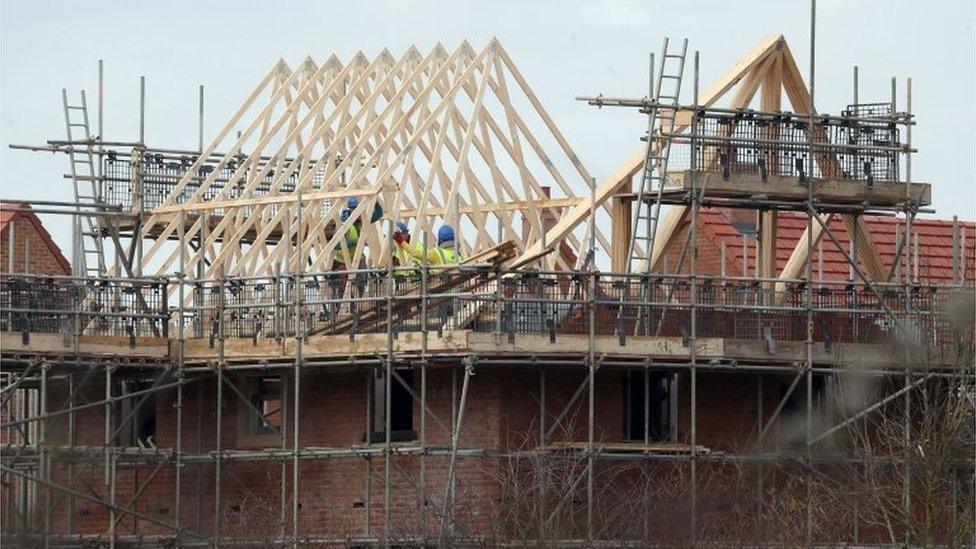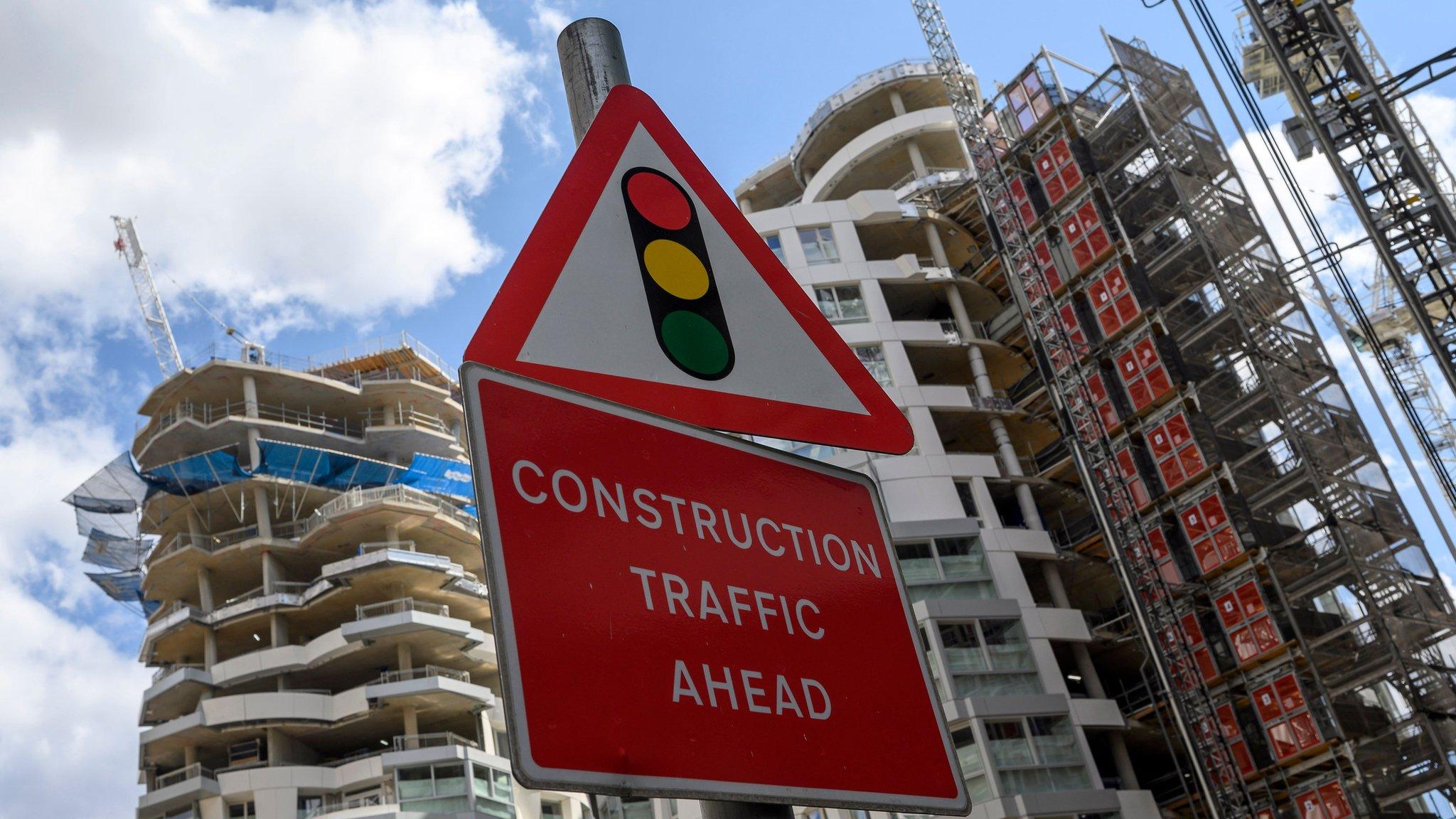£58m to councils for home building on derelict land
- Published
- comments

Thousands of new homes will be build on previously derelict land as part of plans to regenerate local areas, the government has announced.
Almost £58m will be given to councils to redevelop brownfield sites as part of the government's levelling up agenda.
Ministers say the funding could also support up to 17,000 jobs across the housing and construction sector.
England needs 345,000 new homes built every year, figures show., external
Ministers say boosting housing supply is central to their commitment to tackle regional inequalities.
They have pledged to build up to 300,000 new homes a year by the mid-2020s, with 244,000 delivered last year.
But some of the plans for sweeping changes to England's planning rules, external have been paused after a backlash from some Conservative MPs, concerned that local communities have been sidelined.
Under the measures announced, 53 councils across England will be given pots of money to build an extra 5,600 homes and transform derelict sites.
A breakdown of the allocations shows that more than three quarters of the money is going to councils in London and the south of England, although other funding linked to the levelling-up agenda, such as the £1bn Towns Fund, is going mainly to the north west, Yorkshire and the Midlands.
The funding breaks down as follows:
South West - £17.7m
South East - £14.3m
London - £12.7m
West Midlands - £3.6m
Yorkshire & The Humber - £2.7m
North East - £2.5m
East of England - £2.4m
East Midlands - £1.8m
North West - £0.2m
The department for levelling up, housing and communities said £57.8m has been allocated from a £75m Brownfield Land Release Fund (BLRF) to help transform "unloved and disused sites into vibrant communities for people to live and work" with "unsightly derelict buildings and disused car parks and garages" demolished.
And newly-appointed Secretary of State for Levelling Up, Michael Gove, said the plans would boost the economy, while protecting the environment.
He said: "Making the most of previously developed land is a government priority and it will help protect our cherished countryside and green spaces."

Will building on brownfield sites be enough to solve the housing crisis?
A report in 2020 by The Countryside Charity estimated there is enough brownfield land for 1,061,346 housing units over nearly 21,000 sites, covering almost 25,000 hectares
A National Housing Federation (NHF) Report in 2018 estimated there are more than 17,000 brownfield sites totalling around 27,700 hectares, which could provide space for more than 961,000 homes
Neither estimate meets the NHF's analysis that four million households in England are in housing need, including adults who would prefer to live separately from their current households, households that are overcrowded or those living in unsuitable or unaffordable accommodation.

Local Government Association chairman James Jamieson, said the funding would "play a crucial role in supporting the recovery from the Covid-19 crisis" and support councils to "transform their assets, create better services, and release land for much-needed new homes and regeneration across the country".
He said: "Councils recognise how valuable this support is, and are being ever more ambitious in their ideas to use this funding to kick-start transformation, regeneration, and new development in their communities."
Ministers say the funding includes £5m for self and custom-build projects to help make it more affordable for people to build their own homes.
A further £20m from the BLRF is available for council bids, also designated to help accelerate the self and custom-build sector.
Labour has said it would cap the amount of property overseas investors can purchase in new developments, in a bid to help first-time buyers.
At its recent party conference, it said a future Labour government would give councils new powers to buy land for homes and rules governing how developers contribute towards affordable housing would be reformed.
Related topics
- Published21 June 2021

- Published4 July 2021

- Published8 October 2020
